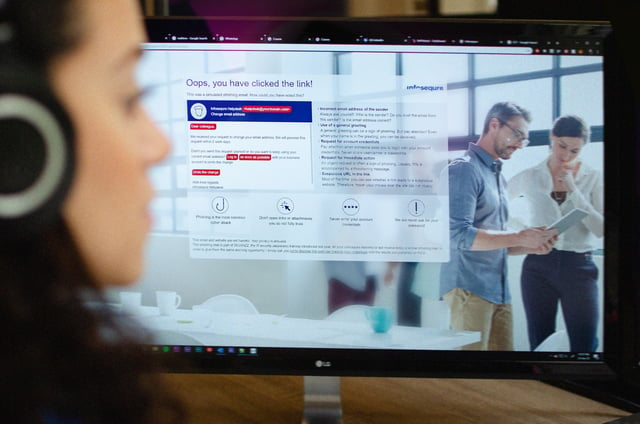The scenario is eerily similar to the other 2: you’re sitting at your make-shift desk in your living room waiting for that email from the guy who just held a 2-hour Teams meeting that could have easily been… an email. Turns out quarantine is not that different.
So you get the email notification and when you go to check it it’s actually another Teams link to another meeting that you’re absolutely sure you could have done in an email. But in the end, you do kinda like the social interaction of these meetings, even if you only get to see your coworkers on screen.
So you click the link
And it’s not a Teams link. It’s a fake page that asks you to log in to your Microsoft account, even though you already have the Teams app open just behind it. You’re too smart for this, and you’ve been reading our blog posts before, so you do what we always recommend you do:
Use your common sense
Phishing is on the rise as much as every other cybercrime that preys on the insecurities or weaknesses that come with the odd situation of a global pandemic. Criminals aren’t dumb. They know that you’re less likely to be alert when you’re working from your couch, or your living room table, an environment specifically designed to make you feel comfortable and let your guard down. When you’re home, you’re safe. At least you’re supposed to be.
Phishing is on the rise as much as every other cybercrime that preys on the insecurities or weaknesses that come with the odd situation of a global pandemic
The reality
But the internet and its dangers are not confined to physical places, so as tiring and annoying as this may be, keep your wits about you when you’re online.
Check every email as you would normally. Is it unexpected? Does the address not match the sender? Does it contain weird attachments? Your best bet is to send a quick text to the person seemingly sending you the email, to make sure its source is what it says it is.
Does it contain a link? Hover over it and check the domain. Things like microsoft.freedomain.co.uk are as fishy as they sound.
Does it generally just not sit well with you? Just throw it away. Let your responsible department know about it, and make a Teams meeting with your co-worker instead. I guess that meeting could not have been an email after all.
So there you have it. 3 bad situations you can get yourself out of very easily, just by paying a bit of attention. Have you ever encountered any of these? Was your reaction appropriate? And more importantly, are you done with all the Teams meetings already? Let us know!






